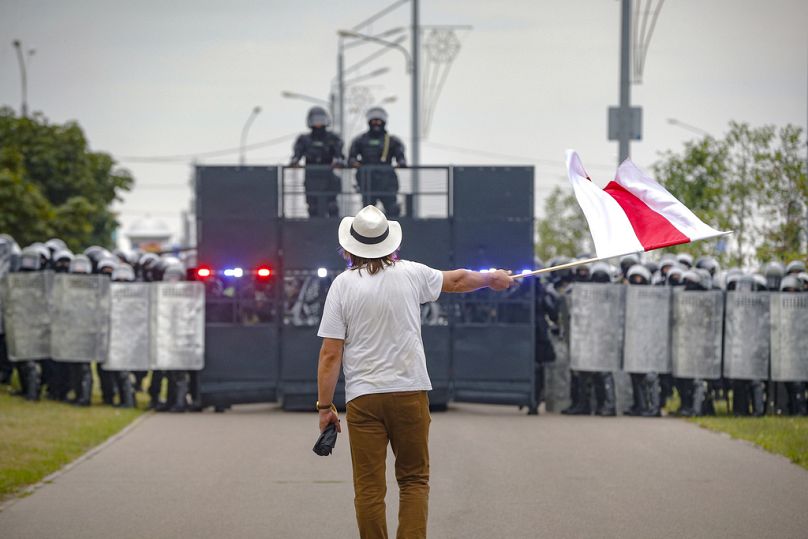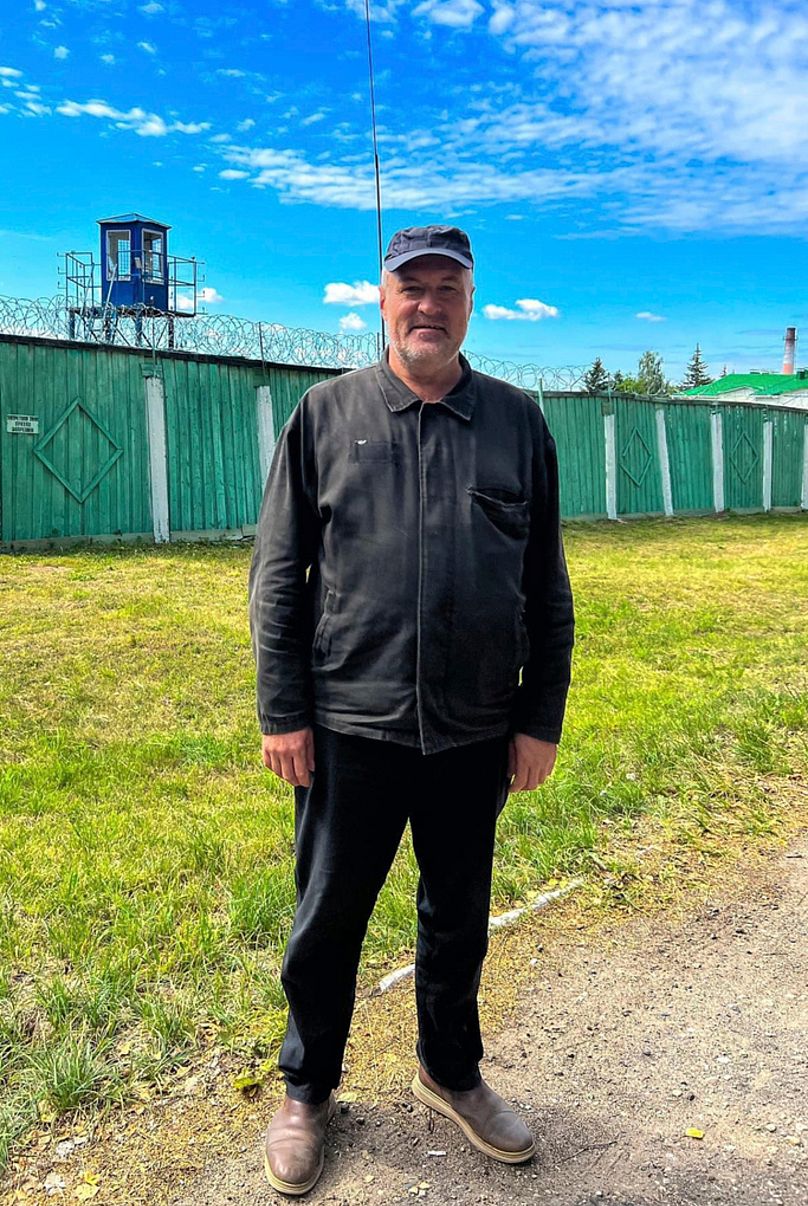Human rights activist Leanid Sudalenka claims that guards routinely bully, abuse and humiliate prisoners and medical issues are left untreated.
During his three years in a Belarusian penal colony, human rights activist Leanid Sudalenka says he and other political prisoners were regularly deprived of family visits, phone calls and parcels. He nearly died when COVID-19 swept through the facility.
He also claims he was forced to spend the last nine days of his sentence in a damp punishment cell, sleeping on the concrete floor with a roll of toilet paper for a pillow.
He had to wear a yellow tag on his uniform - as do all the estimated 1,473 political prisoners held in Belarus - so they're easily identifiable to guards who he said routinely bullied, abused and humiliated them.
“The Belarusian authorities deliberately create terrible detention conditions for political prisoners, which qualify as torture,” Sudalenka said in an interview with The Associated Press after he finished his time behind bars and fled to neighboring Lithuania.
Belarus has cracked down on opponents of authoritarian President Alexander Lukashenko ever since the August 2020 election that gave him a sixth term in office in balloting that was widely viewed as fraudulent.
Protests swept the country for months afterward, bringing hundreds of thousands into the streets. More than 35,000 people were arrested, thousands were beaten in police custody, and hundreds of independent media outlets and nongovernmental organisations were shut down and outlawed.
Although most demonstrators served a few days or weeks in jail, those like the 58-year-old Sudalenka - a political activist for two decades - were hit with more serious charges that landed them in prison for years. Last month, he learned authorities had opened a new case against him, although he is now safely abroad, having sneaked out of Belarus last summer.
Still imprisoned is 2022 Nobel Peace Prize winner Ales Bialiatski, who founded Viasna, Belarus’ oldest and most prominent human rights group. He is serving a 10-year sentence and is being held “in complete isolation,” without access to doctors, said his wife, Natalia Pinchuk, in an AP interview.
A few prisoners haven't survived incarceration, she said, noting that artist Ales Pushkin died in July of a perforated ulcer after receiving no medical care, and Vitold Ashurak, whose body was turned over to his relatives in 2021 still bearing a head bandage.
Some have vanished into the prison system after their arrest. There has been no word on the fate of Viktar Babaryka, who sought to challenge Lukashenko in the election and reportedly was beaten while serving a 14-year sentence. Another opposition leader, Mikola Statkevich, hasn't been heard from for nearly a year.
“The world needs to know this and respond to it,” Pinchuk said. “People disappear in Belarusian colonies and prisons, and the relatives of many political prisoners do not hear anything about them for hundreds of days.”
She has taken her husband's case to UN human rights officials.
Officials at the penitentiary department of the Belarus Interior Ministry told AP on Wednesday that they have no comment on the allegations.
At the time of the protests in 2020, Lukashenko labelled reports of abuse and beatings of protesters in detention as “fake” and “not true.”
Nonetheless, Sudaleks says the tags prisoners are forced to wear are “too clearly reminiscent" of those that Jews were forced to wear in Nazi Germany.
“All political prisoners with yellow tags are subjected to extra trouble and humiliation every day,” Sudalenka said. “Methods of bullying can range from punishment cells and complete information isolation, to refusing a meeting with a lawyer and denying of medical care and medicine.”
Around the time the war in Ukraine started in February 2022, there was an outbreak of COVID-19 at the penal colony, and Sudalenka said he got sick, running a fever of 40 degrees Celsius (104 degrees Fahrenheit), losing his sense of smell and having difficulty breathing. His pleas to see a doctor were ignored, with guards instead giving him an unidentified pill every day.
“I was delirious for 20 days, between life and death, and miraculously remained alive, since the doctor never examined me,” he said.
Sudalenka submitted a complaint to the UN Human Rights Committee that was registered in October and later forwarded to Belarusian authorities, who still have not responded.
He said the new criminal case launched against him in November on extremism charges was “a form of a response.”
This month, US authorities demanded Belarus release all political prisoners or else sanctions imposed on Minsk will be tightened. New US sanctions against 19 Belarusian individuals and legal entities who support Lukashenko were announced 5 December.
Belarusian opposition leader-in-exile Sviatlana Tsikhanouskaya, whose husband is serving a 19.5 year prison term, met this month with State Department officials and lawmakers, and a Belarus-US working group on political prisoners was formed.
“We are willing to talk about changing our policies, easing sanctions, and improving our relations once the regime releases all of its political prisoners, stops its repression of the Belarusian people, and ends its complicity in Russia’s war against Ukraine,” said State Department spokesman Matthew Miller.
Lukashenko, however, refuses to discuss political prisoners with the West.













